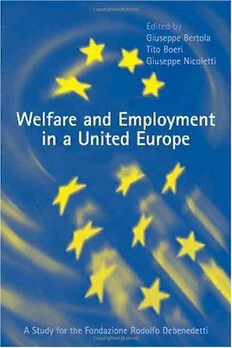
Welfare and Employment in a United Europe: A Study for the Fondazione Rdolofo Debenedetti PDF
302 Pages·2001·1.584 MB·English
Most books are stored in the elastic cloud where traffic is expensive. For this reason, we have a limit on daily download.
Preview Welfare and Employment in a United Europe: A Study for the Fondazione Rdolofo Debenedetti
Description:
Over the last twenty years, fifteen Western European nations have removed most barriers to trade and migration, as well as most forms of national discrimination in economic and social exchange. Some have also given up their national currency and their ability to conduct independent monetary and fiscal policy. Opinion on the future of structural reform in the European Union tends to fall into two camps. One side argues that the single market and monetary union will make it more difficult to carry out badly needed structural reforms. The other side contends that, as monetary policy is decided elsewhere, countries will have more resources to concentrate on structural concerns.Welfare and Employment in a United Europe takes a nuanced approach to the issues. Unusual for an edited volume, it consists of two long studies--each written by a group of economists working in four different countries of the European Union--followed by commentary. The first study suggests that social reform can be achieved without strengthening European Union institutions and should entail limited international redistribution. The second suggests that, although liberalization of product and labor markets offers substantial benefits, there is no guarantee that the European Monetary Union will result in fewer product market restrictions or less employment protection.Contributors Charles Bean, Giuseppe Bertola, Olivier Blanchard, Tito Boeri, G?sta Esping-Andersen, Robert Haffner, Juan Jimeno, Ramon Marimon, Steve Nickell, Giuseppe Nicoletti, Christopher Pissarides, Andr? Sapir, Stefano Scarpetta, Gylfi Zoega.
See more
The list of books you might like
Most books are stored in the elastic cloud where traffic is expensive. For this reason, we have a limit on daily download.
